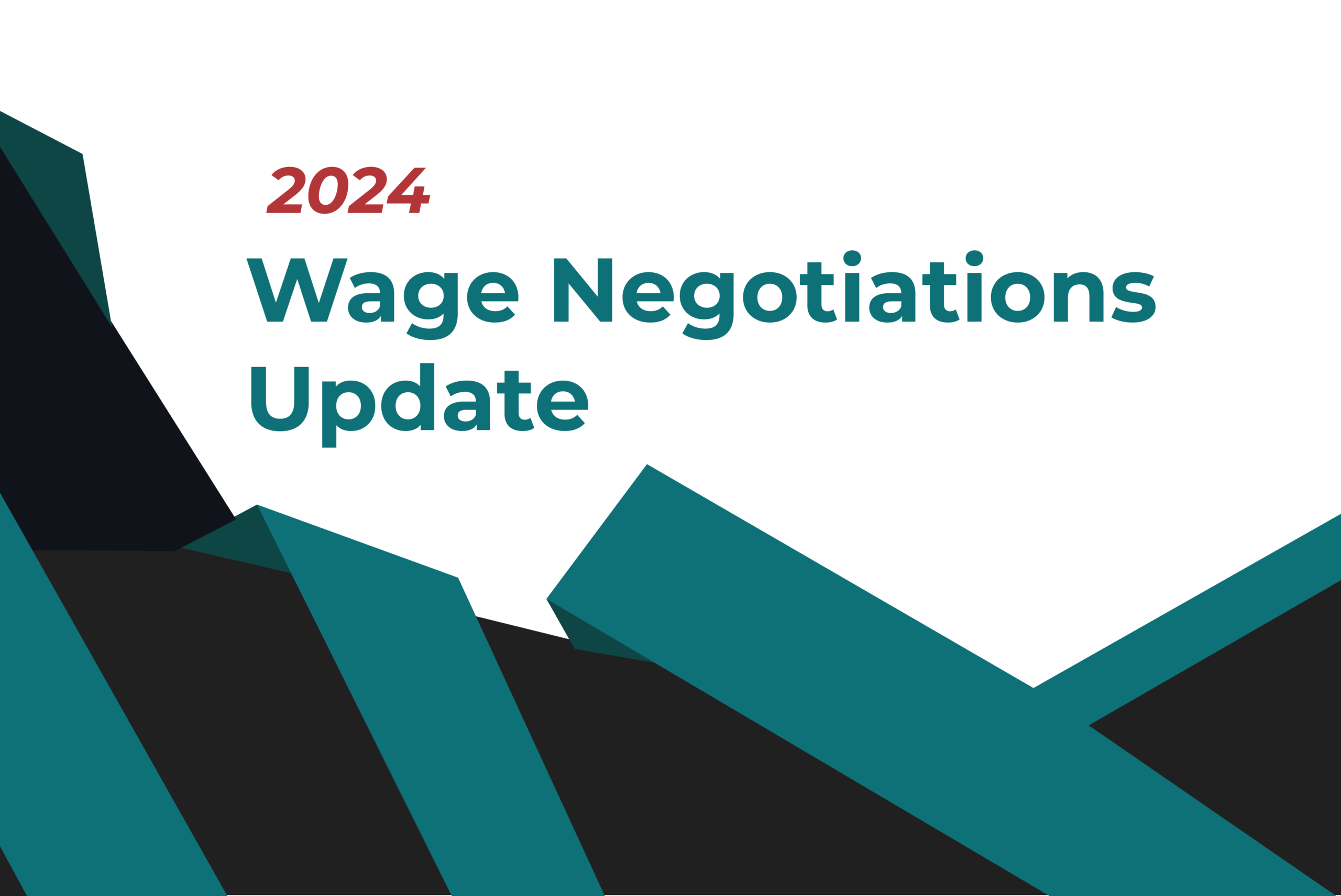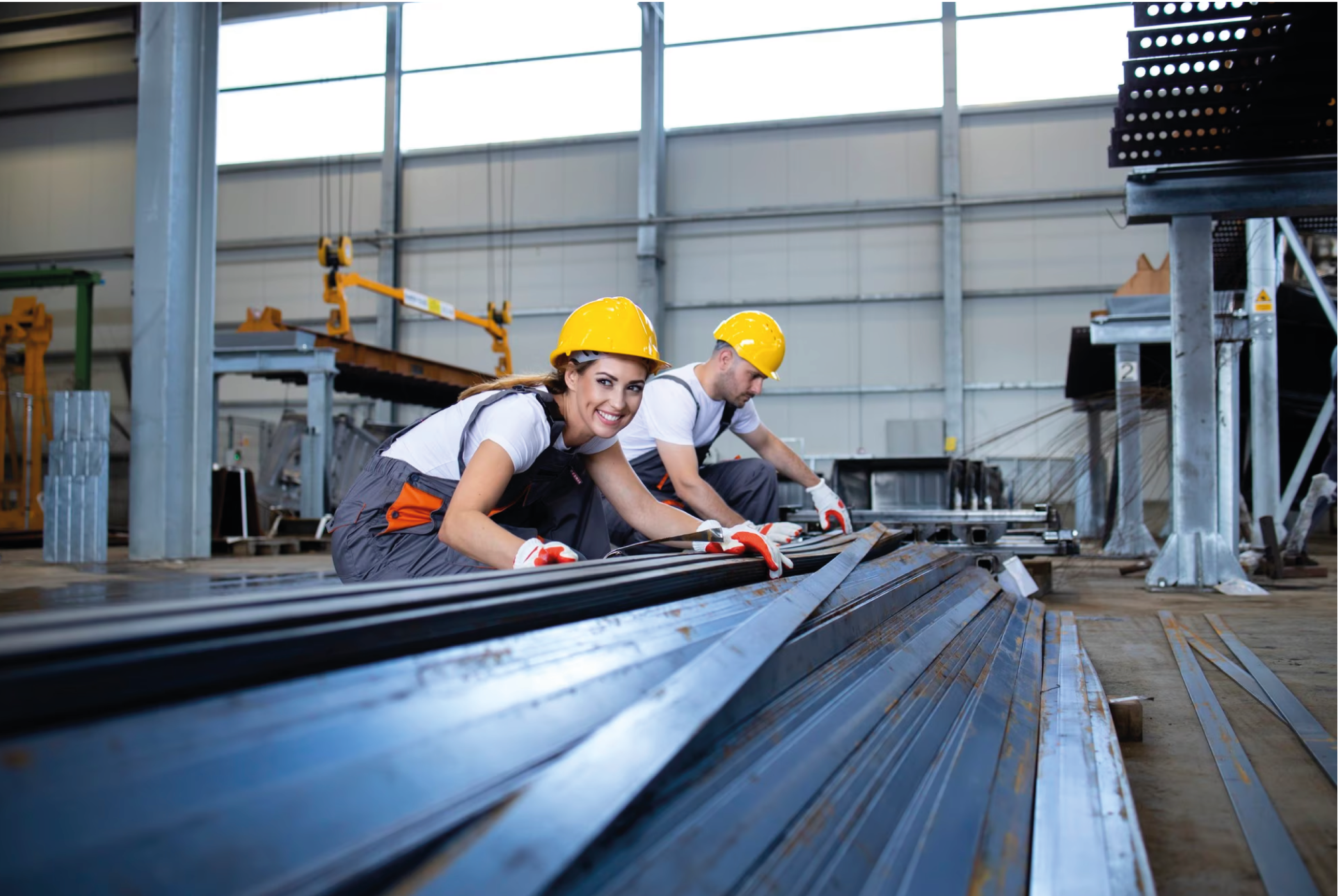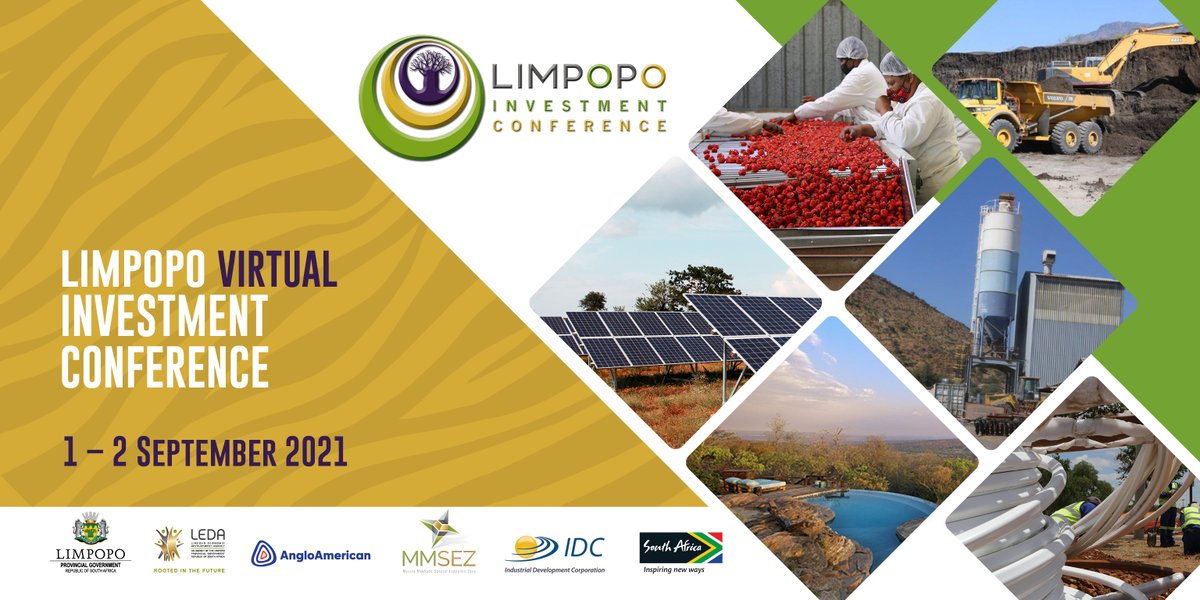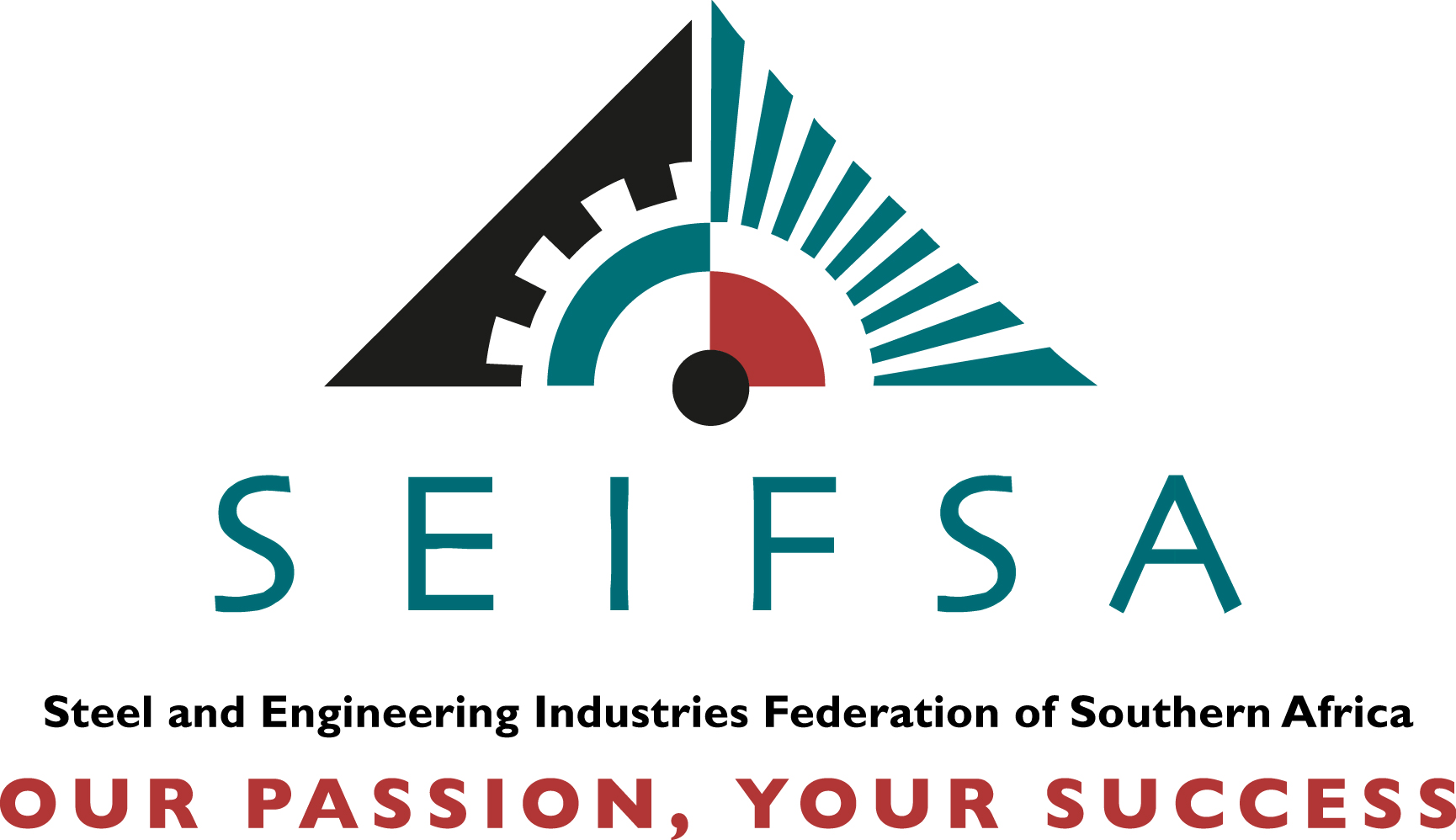SEIFSA and unions call for a metals and engineering industries reconstruction, reindustrialization and development plan
SEIFSA AND UNIONS CALL FOR A METALS AND ENGINEERING INDUSTRIES RECONSTRUCTION, REINDUSTRIALIZATION AND DEVELOPMENT PLAN
Negotiations on the 10 April held between SEIFSA representing the 18 affiliated Employer Organizations, NUMSA, Solidarity, UASA, MEWUSA, SAEWA and NUM, culminated in the calling for a Metals and Engineering Industries Reconstruction, Reindustrialization and Development Plan in order to afford the industry an opportunity to re-set in an enabling environment underpinned by certainty, stability and industrial peace.
”With South Africa’s economic outlook unlike any experienced before, the time was ripe for parties to work together and more so, in the area of industrial policy, to construct a collective agreement that quickly and with minimal angst and anxiety settles the vexed issue of wages and brings all stakeholders together to jointly formulate a framework focused on re-building and repairing public infrastructure, alleviating bottlenecks constraining economic growth, while ensuring the long-term sustainability of the metals and engineering sector, which is critical to the reconstruction, reindustrialization and development of the economy.” Trentini said.
“SEIFSA applauds the trade unions for taking this bold and courage’s stand in putting the interests of the metals and engineering sector – and, indeed, the interests of our country – first. We remain cautiously optimistic that consensus will be found,” Trentini said.
The negotiating partners may just be on the verge of achieving something never achieved or at the very least never in the last three decades – and that is concluding an agreement during the currency of the existing agreement set to expire on 30 June 2024.
With negotiations set to continue on 24 April 2024, SEIFSA gave notice that it intends to reach out and work with all the employer and trade union stakeholders. The SEIFSA Council will also reconvene before the next round to receive a report back from the negotiators.
L Trentini
Chief Executive Officer
Union Demands Documentation
Updated Documents
MA Negs 2024_Process Agreement_Signed
MEIBC WAGES DEMANDS 2024 MEWUSA
MA Negs 2024_ Associations Demand Letter_Annexure E - SEIFSA's Affiliated Employer Organisations
MEIBC CEOSA 2024 Negotiation Mandates
NEASAs demands MEIBC 2024 (1) (1) (2)
NUMSA Engineering Demands 2024
SAEFA Proposals Annexure E 2024
UASA MEIBC WAGE DEMANDS 2024 (1)
TESD urges members to observe incoming NLMP legislation
“In my mind we are facing three main disruptors in the labour market that are going to result in the displacement of I think between one and 1.5 million people in the next few months and years.”
These were the words of Joint Chief Executive Officer of Global Business Solutions John Botha at the Temporary Employment Services Division webinar discussing the National Labour Migration Policy.
Botha identified the major disruptors with a particular focus on the intricacies surrounding the pertinent National Labour Migration Policy(NLMP).
The disruptors outlined by Botha were the following:
- The National Labour Migration Policy
- Employment Equity ministerial targets and
- Platform workers
The above mentioned were categorised as a “wonderful opportunity” for employers to build their business in alignment with South African labour law.
In the South African political landscape, foreign nationals are an easy target. Operation Dudula and the national stay away hosted by the Economic Freedom Front on 20 March 2023 illustrated the politicisation of job (in)security and its effects on South Africans. The NLMP is “an attempt by the government to create direction on how to manage the complexities of our economy,” stated Natalie Singer, Executive Consultant and Human Capital Specialist at Global Business Solutions .
Skilled labour shortages in the South African economy have ensured the war on talent continues, but what does that mean for employers and how do they remain compliant with incoming legislation? The NLMP serves as a regulatory measure which extends South Africa’s obligation to uphold standards as a member of the International Labour Organisation(ILO).
As the NLMP is introduced, it affects other facets of national legislation such as the Employment Services Act (of 2014) which must be amended to take it into account. The amendment to the bill is over one year behind schedule, however with the looming election period, it is presumed that it will be prioritised as it serves as a point of political contention.
The priorities of the NLMP are as follows:
- Attracting and retaining skills (in)to the country to meet the economy’s long and short-term goals
- Imposing quotas to limit the number of foreigners
- Prioritising certain sectors in urgent need of critical skills
- Improving conditions for all migrant workers
- Improving the conditions of social protection of migrant workers in South Africa and upon return to their country of origin
- Creating legal labour migration pathways through strong bi- and multilateral partnerships with SADC Member States and beyond
2022 transformation numbers reported that 3-3.5% of the South African labour force consists of foreign nationals. This is with the exception of skilled labour or Artisans who were represented by a percentage of 1.7% foreign nationals.
The Zimbabwean Exemption Permit’s (ZEP) imminent expiration date is something which employers across South African industries must pay close attention to. Meant to expire in April of 2021 the ZEP was extended to 30 June 2023. This grace period is mandated by the Department of Home Affairs as a concession for Zimbabwean foreign nationals to re-apply for their relevant South African visas or return to Zimbabwe.
Although it is illegal for foreign nationals to hold occupations without the relevant legal requirements being met, liability falls on employers to enforce the law within correct due diligence processes.
Employers have very specific obligations, as per the Immigration Act and associated regulations, including and ensuring that:
- Foreign national employees hold a valid passport/ID and visa
- Employment is consistent with the conditions of the employee’s visa
- Home Affairs is notified when a foreign national leaves their employment
- All documentation is retained for at least two (3) years after the foreign national has exited
It is also mandated by the government that employers prioritise hiring South Africans before foreign nationals. The Critical Skills List serves as an indication of skills which are lacking nationally where the government recognises the need to hire foreign nationals, more than in other circumstances.
Some of these roles which speak to TESD members in the technical and engineering sectors are the following:
- Architect
- Civil Engineer
- Geologist
- Industrial Engineer
- Mechanical Engineer
- Metallurgist
- Quantity Surveyor
The Critical Skills List has other concessions which form part and parcel of the list such as tertiary qualifications being in line with the South African Qualifications Authority.
All South African employers are encouraged to audit their employees regularly to remain compliant with South African Labour Law. The fast-approaching expiry of the ZEP will have legal consequences for employers. Businesses must also take note of the Lesotho Exemption Permit expiry in June 2024.
Temporary Employment Services (TES)
The Metal Industry Main Agreement (MA) was gazetted by the Minister of Employment and Labour on 7 October and became legally binding on all employers, including Temporary Employment Service (TES) providers, in the metals and engineering (M&E) sector on 17 October 2022.
A key and unique feature of the MA is that it does not differentiate between an employer owning and/or overseeing a factory and a TES provider providing labour and related services to employers in the sector. The MA treats both exactly the same and apart from the provisions related to joint and several liability contained in the Labour Relations Act (LRA), TES providers in a post gazettal operating environment are legally obliged to adhere to all the terms and conditions of engagement, employment and deployment contained in the MA.
Over and above what the LRA prescribes for TES providers, the MA sets out a comprehensive set of terms and conditions related to how TES providers should operate in the M&E sector. In a post gazettal environment, should must be read as shall and whilst some TES providers may be tempted to cut corners and claim ignorance when it comes to various legal compliance obligations contained in the MA, the Bargaining Council i.e., the industry’s compliance and enforcement agency, will not be swayed by arguments of ‘’I did not know” or “I wasn’t aware”.
Clients of TES providers who knowingly or unknowingly enter into commercial agreements containing provisions in conflict with the MA will be found wanting. The Bargaining Council will have no hesitation in following up on such complaints, will site the TES provider and the client in any ensuing dispute and should the client and/or the TES provider be found wanting, joint and several liability will come into play.
In a business environment where legal compliance is becoming increasingly complicated, it’s imperative when considering making use of a TES provider, you do so knowing you are contracting with an agency that is reputable, compliant and most importantly, has been vetted by a body that was instrumental in getting TES providers recognized as being no different to any other employer operating in the M&E sector – the CEA (TESD).
The Temporary Employment Services Division of the CEA is the only reputable voluntary professional body of TES providers in the M&E sector. The body speaks for and on behalf of TES providers and ensures that TES providers are treated no different to any other employer in the sector, are recognized for the important service they provide and are acknowledged for the many thousands of pathways they have created for employees who have been provided to clients and over time find permanent employment.
The CEA (TESD), as a condition of accredited membership, will require that a TES provider seeking affiliation subject itself to an accreditation audit , conducted by an independent auditor, appointed by the CEA (TESD) in order to verify and validate legal compliance with provisions contained in the MA, LRA, MEIBC, MIBFA etc. Having passed the audit, the TES provider will be issued with a certificate of compliance and will be loaded to the industry data base of compliant TES providers. This process enjoys the full support of the Bargaining Council, the Department of Employment and Labour, industry trade unions and for employers or clients amounts to a resounding vote of confidence and peace of mind.
Should you be interested in joining a body of reputable and professional TES providers and in the process network and be part of the on-going discussions related to the future of TES providers in the metals and engineering industry, no more than ever would be a good time to do so.
To join the CEA (TESD) or to get more information on the benefits of being a member email Christa Smith at christa@associationadministrator.co.za or visit the TESD website at www.tesd.org.za.
SEIFSA Chief Economist to address delegates at influential investment conference
The Limpopo Investment Conference, taking place on 1st and 2nd of September which features South African President Cyril Ramaphosa, Minister Ebrahim Patel and the Limpopo Premier Stanley Mathabatha will also see SEIFSA’s Chief Economist Chifipa Mhango present on the subject of Limpopo’s Industrialized Economy in the context of Sub-Saharan Africa.
According to Mhango the conference is an important intervention because it begins to position Limpopo province as a destination for investment. “This conference sits at the intersection of mining, beneficiation tourism, special economic zones, agriculture, energy and industrial infrastructure and technology so it is apt and important that metals and engineering be represented as well.”
“The M&E Sector is just so ubiquitous and therefore tends to be taken for granted. But no industry happens without it and economic growth stagnates without a strong and local M&E base”, says Mhango.
Recognition of this importance is the fact that the presentation from SEIFSA is positioned on the first day, right after the Keynote Address from the President of the Republic.
“This is a fantastic opportunity for SEIFSA to reinforce key issues such as localization, employment and to voice our support for the Steel and Metal Fabrication Master Plan 1.0” concludes Mhango.
Other organizations on the programme include the Industrial Development Corporation (IDC), the Development Bank of Southern Africa (DBSA) the DTIC, and the African Development Bank.
Click here to view the full programme.
SEIFSA appoints Lucio Trentini CEO
JOHANNESBURG, 2 AUGUST 2021 – Industry veteran Lucio Trentini has been appointed Chief Executive Officer of the Steel and Engineering Industries Federation of Southern Africa (SEIFSA) with immediate effect.
SEIFSA Board Chair, Elias Monage in acknowledged the challenges currently confronting the South African economy in general and the metals and engineering sector in particular, stressed that “it is crucial for all SEIFSA member Associations and other stakeholders to work together.”
Mr Monage stressed that “there are enormous challenges that lie ahead, challenges across the broader business agenda and not just in the collective bargaining space.” “What is needed” Mr Monage stressed “is a focused strategy, a single powerful voice representing the views and concerns of all Associations which, in turn, talk for and on behalf of their respective members.”
“A powerful SEIFSA” Mr Monage emphasized “is best placed to debate and /or negotiate these issues on behalf of the industry and thereby elevating the discourse into a new era of constructive engagement with all industry stakeholders.”
Mr Monage stressed “whilst these difficult conditions are likely to prevail for some time that on the SEIFSA Board and in the Executive, SEIFSA has individuals with extensive and vast experience to steer the metals and engineering sector through the current challenges.”
Mr Trentini until his appointment was the Operations Director at SEIFSA. He has been with SEIFSA since 1990 and over the last two decades he has been involved at management and executive level at SEIFSA and has been actively involved in the leadership of the Federation. He has gained extensive experience in the metals and engineering industries and has developed sound working relationships with all industry stakeholders.
Mr Trentini holds a BA degree in Economics and Industrial Psychology and a Post-Graduate Diploma in Management from the University of the Witwatersrand and the WITS Business School respectively. He also holds an Expert Negotiator Certificate from the University of Pretoria’s Gordon Institute of Business Science.
Mr Trentini represents employers in the metals and engineering sector on various Institutions and Statutory Bodies. He is also a member of the Management Committee of the MEIBC, a SEIFSA Executive Director, a Director on the Board of MIBFA and an employer representative on the Labour Market Chamber of NEDLAC and the Social and Transformation Committee of BUSA.
Trentini in accepting his appointment expressed his gratitude to the SEIFSA Board, SEIFSA Council and Executive Team in entrusting him with the stewardship of the Federation over what by all accounts will be a difficult and challenging forward period.
“This Team,” Mr Monage stressed “will provide the necessary guidance and use its considerable leadership experience to instill confidence and continue to deliver good, efficient, effective and reliable service and support to all of SEIFSA’s members Associations and their member companies.”
Ends
Metals and Engineering Indaba to engage on sectoral master plans, with focus on the steel master plan
JOHANNESBURG, 3 May 2021 – The sixth Southern African Metals and Engineering (M&E) Indaba taking place in Johannesburg on 24-25 May 2021 will delve into pertinent topics as industry stakeholders gather to discuss solutions to revive the ailing sector.
Organised by the Steel and Engineering Industries Federation of Southern Africa (SEIFSA) in partnership with the Independent Development Corporation (IDC), the Indaba brings together business, labour and the Government to engage on how to address challenges facing the sector.
Among the topics to be discussed at the Indaba, which takes place at the IDC Auditorium in Sandton, Johannesburg is the Department of Trade, Industry and Competition’s Reimagined Industrial strategy, which seeks to develop industries by building partnerships with the private sector, using the various sectoral master plans, including the Steel Master Plan, as the launchpad towards a shared vision for job creation.
A panel of speakers, including SEIFSA Chief Economist Chifipa Mhango and ArcelorMittal CEO Kobus Verster, will engage on the Steel Master Plan, providing an update on it and other sectoral master plans. Among the questions to be answered is whether the master plans will make a difference to the economy and succeed in creating much-needed jobs. The discussion is also expected to give an update on the Steel Master Plan, which has yet to be finalised.
“The various master plans are expected to play a central role in helping revive struggling industries. Their significant role means that we need to continuously interrogate whether they are likely to achieve their stated aims,” said SEIFSA CEO Kaizer Nyatsumba.
“As the M&E sector, we need to be vocal about whether the Steel Master Plan will work – and where we think it can be further refined. It is apt that this takes place on a platform such as the M&E Indaba, which was established on the principle of a partnership between the Government, business, labour and civil society,” he said.
SEIFSA calls on customer-centric companies to enter SEIFSA Awards for Excellence in the customer service category
SEIFSA calls on customer-centric companies to enter SEIFSA Awards for Excellence in the customer service category
JOHANNESBURG, 12 APRIL 2021 – The Steel and Engineering Industries Federation of Southern Africa (SEIFSA) calls on companies in the Metals and Engineering (M&Ewith a proud customer service record to submit their entries for the annual SEIFSA Awards for Excellence.
The 2021 SEIFSA Awards for Excellence seek to promote and reward innovation and excellence in the M&E sector, with this year’s entrants to be assessed on their performance during the period 1 July 2019 to 31 December 2020. The Award ceremony will take place on 20 May in Johannesburg.
SEIFSA CEO Kaizer Nyatsumba said with customers having an increasing number of choices in markets that are fast becoming saturated, the customer experience is often what sets apart good companies from great ones.
“Customer-centricity is no longer just a buzz phrase used in the marketing and sales department – every touch point, from a customer’s interaction with a technician, to a call answered by the receptionist, is an opportunity to elevate the customer experience. Many companies in the M&E sector understand that and have put their customers at the heart of their business strategies. We would like to shine the spotlight on these companies and reward them for their efforts,” Mr Nyatsumba said.
He said this Award was particularly important because with many consumers under pressure, it is only those businesses which are able to align themselves to not only their customers’ needs, but also their pockets, that will be able to ensure they hold onto those customers after the COVID-19 pandemic.
In addition to the Customer Service Award of the Year Award, the SEIFSA Awards for Excellence, which are now in their seventh year, will also celebrate companies which excel in the following categories:
- Most Innovative Company of Year;
- Health and Safety Award of the Year;
- Best Corporate Social Responsibility Programme of the Year;
- Environmental Stewardship of the Year;
- Most Transformed Company of the Year; and
- The Artisan Award of the Year.
Both SEIFSA and non-SEIFSA member companies are eligible for entry.
Declining trend in manufacturing sector production worrying, says SEIFSA
JOHANNESBURG, 8 APRIL 2021 – The unabated decline in manufacturing production is worrying and may worsen further amid steep electricity tariff and transport cost increases, the Steel and Engineering Industries Federation of Southern Africa (SEIFSA) said today.
According to data released by Statistics South Africa today, total manufacturing production declined by 2.1% year on year in February 2021, while it fell by 1.2% from January 2021. Total manufacturing sales, however, increased by 3.5% year on year in February 2021 and by 3.2% from January 2021. Year-to-date production declined by 3.1%, while sales improved by 2.1%.
Within the Metals and Engineering (M&E) sector, which accounts for a 29% share in total manufacturing production, total production across the 13 sub-categories increased by an average of 0.6% in February 2021 year on year, with total sales increasing by 5.3% to reach R70.8 billion.
Commenting on the data, SEIFSA Chief Economist Chifipa Mhango said the manufacturing production trends are worrying as they take place at a time when output needs to improve in order to spur economic recovery. He expressed concern that cost variables could push that output in the opposite direction.
“The manufacturing sector and M&E sub-sector, in particular, are sensitive to cost increases; this month’s 15.6% rise in electricity tariffs as well as increases in transport costs will only serve to deepen the decline in activity in the industry as companies, unable to absorb these costs, close shop,” he added.
Mr Mhango said the manufacturing sector is already in a woeful state, with declining levels of employment and investment and a weak global trade position. This, he said, had been worsened by the COVID-19 pandemic and the resultant lockdowns to curb its spread, with the sector now only contributing 12% to GDP from levels of 25% in the 1990s. He said this is contrary to other emerging economies, whose manufacturing sectors contribute 50% to their economies.
Mr Mhango urged the Government to intensify its efforts to revive the ailing economy.
“While SEIFSA is encouraged by the allocation of R54 billion over the next three years for economic and industrial development, among other interventions, the Government needs to speed up other interventions such as the implementation of the Steel Master Plan for the benefit of primary and downstream players,” he said.
The M&E sector, he said, is also pinning its hopes on the Government’s R791.2 billion public infrastructure spending over the next three years, since it is heavily reliant on key public infrastructure projects to boost its production and sales, especially in categories such as steel and downstream products such as roofing material. Mr Mhango said the implementation of these projects was important, especially if local content requirements are also enforced.
He said this, along with a shift towards expanding South Africa’s M&E production sales footprint onto the rest of Africa by taking advantage of the African Continental Free Trade Area, will help the sector back on its feet.
Ends
Issued by:
Mpho Lukoto
Communications Manager
Tel: (011) 298 9411 / 082 602 1725
Email: mpho@seifsa.co.za
Web: www.seifsa.co.za
SEIFSA urges Metals and Engineering businesses to showcase their environmental stewardship at the SEIFSA awards
JOHANNESURG, 7 APRIL 2021 – The Steel and Engineering Industries Federation of Southern Africa (SEIFSA) once again calls on companies in the Metals and Engineering (M&E) sector to submit their entries for the 2021 SEIFSA Awards for Excellence in the Environment Stewardship Award category.
Now in their seventh year, the SEIFSA Awards for Excellence seek to promote and reward innovation and excellence in the M&E sector, with this year’s entrants to be assessed on their performance during the period 1 July 2019 to 31 December 2020.
The Environment Stewardship Award celebrates a company which has taken seriously the environmental challenges that confront the world and has successfully implemented the necessary steps to ensure that the natural environment is preserved. The company will have demonstrated in its entry that it has gone out of its way to invest in the environment and has successfully implemented initiatives in its day-to-day business operations.
In 2019, the Award was won by Babcock for its water conservation initiatives. The company had taken it upon itself to protect, control and conserve water usage in the business through several initiatives, including using water meters at its different sites and reusing water.
“South Africa faces significant environmental challenges such as water scarcity and air pollution. Together as the business community, we need to find lasting solutions to these challenges. By showcasing companies mitigating their negative effect on the environment through sustainable initiatives, we not only create a platform to engage on how to further protect our environment, but we also offer examples that other companies can emulate,” said SEIFSA Chief Executive Kaizer Nyatsumba.
The Award ceremony will take place on 20 May 2021 at a venue yet to be confirmed. In addition to the Environmental Award, the other categories include:
- Most Innovative Company of Year;
- Health and Safety Award of the Year;
- Best Corporate Social Responsibility Programme of the Year;
- Customer Service Award of the Year;
- Most Transformed Company of the Year; and
- The Artisan Award of the Year.








